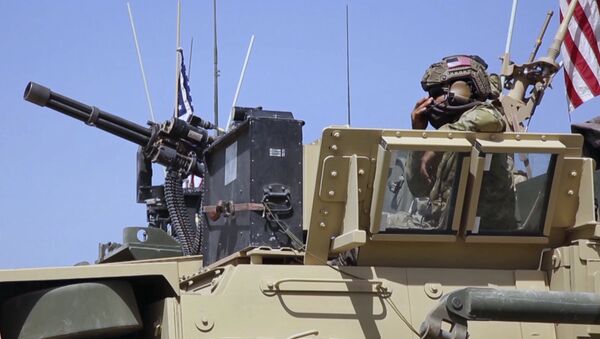"[Canceling the program] is a welcome decision to focus on reducing the threat from the large number of jihadi terrorists that have made themselves at home in the so-called Islamic State rather than to pursue regime failed policies of change in Damascus," Freeman said.
The president’s action implemented the promise he made during his 2016 campaign for the presidency that he would end the emphasis on intervention for purposes of regime change that his predecessors had instituted, Freeman recalled.
"This was a program only its managers could love. Its premises were flawed. The ‘moderates’ it postulated either did not exist or were moderate only in their war-fighting abilities," Freeman explained.
The Syrian government of President Bashar Assad enjoyed a level of popular and foreign support that vastly exceeded the estimates of its detractors, Freeman pointed out.
"The [CIA] program stoked the violence in Syria. It was thus a contributor, at least indirectly, to the deaths of hundreds of thousands of Syrians and the displacement of many millions more," he said.
Trump has been fiercely attacked by neoconservative and other critics who backed the CIA program, including Senator John McCain, head of the Senate Armed Services Committee. But he had acknowledged the scheme’s failure, Freeman noted.
"The decision to axe the program represents recognition that it had not only failed to achieve its objectives but that it had no prospect of achieving them," he stated.
The massive disbursement of funds by the CIA to recruit and train an insurgency directed at overthrowing a government universally recognized by others, including the United States, had drawn foreign condemnation, Freeman pointed out.
The removal of US backing from the insurgents in Syria would help to reduce the mayhem in that country and reduce friction with the Assad government's Russian and Iranian defenders, Freeman predicted.
"It represents an important but incomplete step toward realistic policies in Syria and paves the way for some sort of political solution to the turmoil in the country," he said.
Freeman praised the decision to end the CIA program as "an embrace of reality" by the Trump administration.
"As the late American science fiction author, Philip K. Dick remarked: ‘Reality is what continues to exist whether you believe in it or not,’" he concluded.
Chas Freeman is a lifetime director of the Atlantic Council and served as US Deputy Chief of Mission and Chargé d’affaires at the US embassies in Beijing and Bangkok. Freeman also held several senior level positions at the US Department of Defense.




